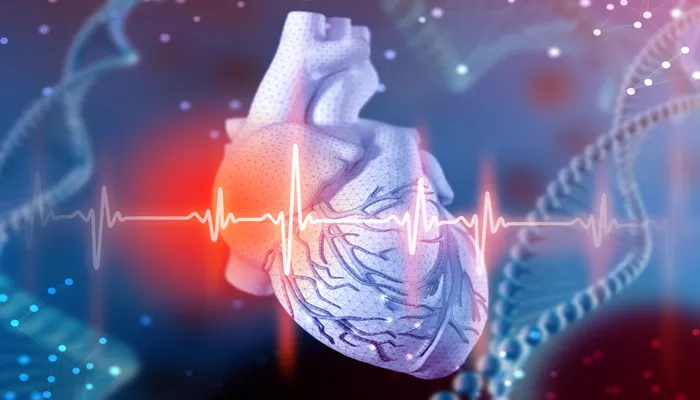Myocarditis is an inflammatory condition of the heart muscle (myocardium) that can lead to significant cardiovascular complications. This article will explore the causes, symptoms, diagnosis, treatment, and prognosis of myocarditis, including its impact on life expectancy.
What Causes Myocarditis?
Myocarditis can be triggered by various factors, with viral infections being the most common cause. Other potential causes include:
Viral Infections: Viruses such as Coxsackievirus, adenovirus, and, more recently, SARS-CoV-2 (the virus responsible for COVID-19) can lead to myocarditis. These infections often present with flu-like symptoms before progressing to heart-related issues.
Bacterial Infections: Certain bacteria can also cause myocarditis, though less frequently than viruses. Examples include those responsible for Lyme disease and diphtheria.
Autoimmune Diseases: Conditions like lupus and rheumatoid arthritis can lead to myocarditis due to the immune system attacking the heart muscle.
Environmental Toxins: Exposure to certain chemicals, heavy metals, and even some medications can result in myocarditis.
Genetic Factors: Some individuals may have genetic predispositions that increase their risk of developing myocarditis, particularly in cases of familial cardiomyopathy.
SEE ALSO: How Long Does Myocarditis Last After Covid
Symptoms of Myocarditis
The symptoms of myocarditis can vary widely, ranging from mild to severe. Common symptoms include:
Chest Pain: Often described as a sharp or stabbing pain, which may be accompanied by discomfort.
Fatigue: A general sense of tiredness or lack of energy.
Shortness of Breath: Difficulty breathing, especially during physical activity or when lying down.
Palpitations: Irregular heartbeats or a sensation of the heart racing.
Fever and Flu-like Symptoms: These can precede the onset of cardiac symptoms, especially in viral myocarditis.
In some cases, myocarditis can lead to severe complications, including heart failure, arrhythmias, or sudden cardiac death.
Early recognition and treatment are crucial to improving outcomes.
Diagnosis of Myocarditis
Diagnosing myocarditis can be challenging due to the nonspecific nature of its symptoms. A comprehensive evaluation typically includes:
Medical History and Physical Examination: A thorough review of symptoms and medical history, along with a physical examination to check for signs of heart failure or arrhythmias.
Electrocardiogram (ECG): This test measures the electrical activity of the heart and can reveal abnormalities indicative of myocarditis.
Echocardiogram: An ultrasound of the heart that assesses its structure and function, helping to identify any areas of dysfunction.
Cardiac MRI: This imaging technique provides detailed pictures of the heart and can help identify inflammation and scarring in the myocardium.
Endomyocardial Biopsy: In some cases, a small sample of heart tissue may be taken for analysis to confirm the diagnosis and identify the underlying cause.
Treatment of Myocarditis
The treatment of myocarditis depends on the severity of the condition and its underlying cause. Common approaches include:
Medications: These may include anti-inflammatory drugs, immunosuppressants, and medications to manage heart failure symptoms, such as diuretics and beta-blockers.
Lifestyle Modifications: Patients are often advised to limit physical activity, especially during the acute phase of the disease, to reduce stress on the heart.
Advanced Therapies: In severe cases, patients may require more intensive interventions, such as mechanical circulatory support or heart transplantation.
Prognosis And Life Expectancy
The prognosis for patients with myocarditis varies significantly based on several factors, including the cause of the condition, the severity of symptoms, and the timeliness of treatment.
Mild Cases: Many patients with mild myocarditis recover fully without any long-term complications. Studies indicate that up to 93% of patients with mild forms of myocarditis have a good prognosis, often returning to normal heart function within weeks to months.
Severe Cases: Conversely, those with severe myocarditis, particularly fulminant myocarditis, face a more challenging prognosis. This form can lead to rapid deterioration of heart function and may necessitate advanced treatments like heart transplantation. Patients with fulminant myocarditis have a higher risk of cardiac death, and many require transplantation within five years.
Long-term Outcomes: Approximately one-third of patients who recover from myocarditis may develop dilated cardiomyopathy, a condition that can lead to chronic heart failure. Regular follow-up and monitoring are essential for these patients to manage potential long-term complications.
Conclusion
Myocarditis is a complex and potentially serious condition that requires prompt recognition and treatment. While many patients recover fully, others may face significant challenges, including long-term heart dysfunction. Understanding the causes, symptoms, and treatment options is vital for improving outcomes and enhancing life expectancy for those affected by myocarditis. Continued research and awareness are essential to advance our understanding of this condition and improve patient care.

